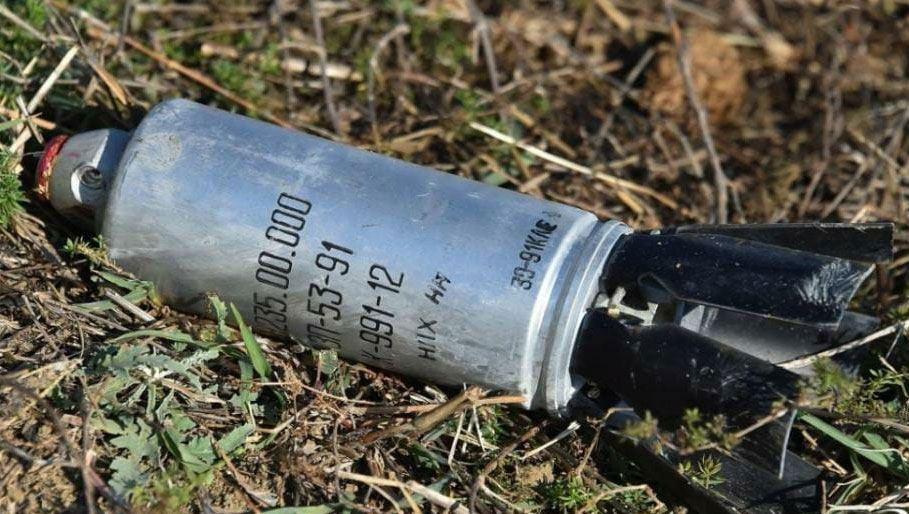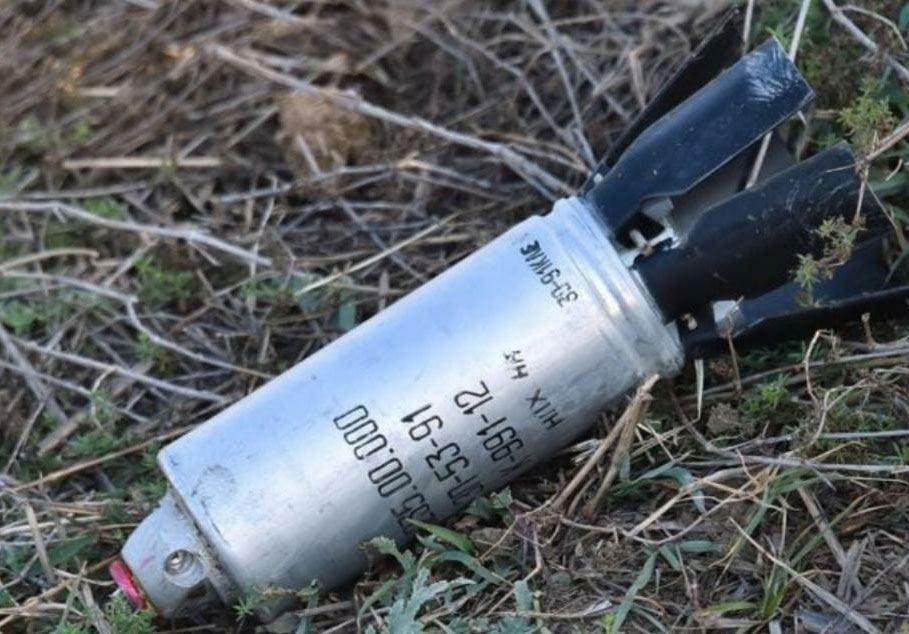Blast in Yevlakh caused by prohibited munitions

By Sabina Mammadli
The explosive devices that killed a civilian in Azerbaijan's Yevlakh region were classified as cluster munitions, the Azerbaijan National Agency for Mine Action (ANAMA) has said.
The agency previously reported that on February 1, 2022, an ammunition explosion occurred near Shurabad village in the Yevlakh region.
"A local resident, Ismayil Mikayilov (born in 1996), who was engaged in household work in the area died as a result of the explosion," the report added.
The appropriate measures were taken in connection with the incident.
Meanwhile, the Azerbaijani Interior Ministry reported that during the inspection of the scene employees of the Yevlakh region police department and the regional prosecutor's office found and defused 17 more unexploded cluster bombs.
The use of weapons prohibited by international conventions confirms Armenia's flagrant violation of international law norms.
The Armenian armed forces used these munitions repeatedly on the battlefield and against Azerbaijan's civilian population during the 44-day war, ANAMA added.
During demining operations in liberated areas, a large number of explosives of this type were discovered and defused. The agency conducts mine awareness activities on a regular basis in war-torn areas. To that end, educational programs are being implemented among rural residents.
The agency urged citizens not to touch unknown objects and to avoid visiting areas that could be dangerous in the event of a mine threat. If suspicious objects are discovered, they must be reported to services "102" and "112."
Beginning on September 27, 2020, the Armenian armed forces did not stop deliberately and intensively attacking civilian areas in Azerbaijan located far from the conflict zone with internationally prohibited munitions, including operational-tactical missile complexes, and continued its war crimes by committing atrocities, which may cause serious environmental damage in the region and threaten Europe's energy security.
Armenia fired a prohibited cluster missile at the Baku-Tbilisi-Ceyhan (BTC) oil pipeline in Yevlakh region on October 6, 2020. The bomb landed about 10 meters from the pipeline. As a result of the attack, over 300 cluster bomblets were ejected into the air.
Baku-Tbilisi-Ceyhan is the largest strategic project in the region, connecting Azerbaijani energy resources to European markets via Georgia and Turkey. It is critical to Europe's energy security.
Armenia purposefully and persistently planted mines on Azerbaijani territory, in violation of the 1949 Geneva Convention, posing a significant threat to regional peace, security, and cooperation.
On December 9, 2021, the Prosecutor-General's Office reported that 29 civilians and seven military servicemen were killed, and 109 servicemen and 44 civilians were injured in varying degrees as a result of mine explosions in the country's lands since November 10, 2020.
A Moscow-brokered ceasefire deal that Baku and Yerevan signed on November 10, 2020, brought an end to six weeks of fighting between Armenia and Azerbaijan. The Azerbaijani army declared a victory against the Armenian troops. The signed agreement obliged Armenia to withdraw its troops from the Azerbaijani lands that it has occupied since the early 1990s.
The peace agreement stipulated the return of Azerbaijan's Armenian-occupied Kalbajar, Aghdam and Lachin regions and urged Armenia to withdraw its troops from the Azerbaijani lands that it has occupied since the early 1990s. Before the signing of the deal, the Azerbaijani army had liberated around 300 villages, settlements, city centers, and historic Shusha city.
---
Here we are to serve you with news right now. It does not cost much, but worth your attention.
Choose to support open, independent, quality journalism and subscribe on a monthly basis.
By subscribing to our online newspaper, you can have full digital access to all news, analysis, and much more.
You can also follow AzerNEWS on Twitter @AzerNewsAz or Facebook @AzerNewsNewspaper
Thank you!

